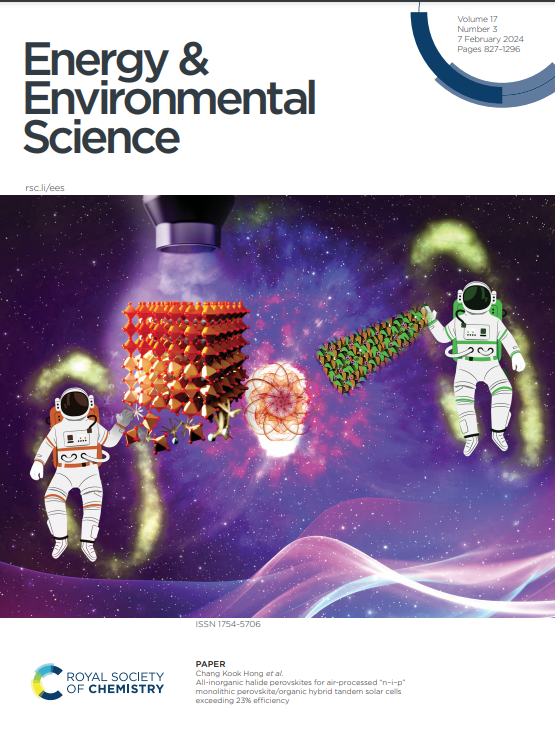Advancing Extreme-Temperature-Tolerant Zinc-Air Batteries through Photothermal Transition Metal Sulfide Heterostructures
IF 32.4
1区 材料科学
Q1 CHEMISTRY, MULTIDISCIPLINARY
引用次数: 0
Abstract
The potential to produce cost-effective, high-performance bifunctional oxygen catalysts holds significant promise for the commercialization of zinc-air batteries (ZABs). In this study, photothermal electrocatalysts consisting of NiCo2S4@NiFe layered double hydroxides on a graphene oxide (NiCo2S4@NiFe LDH/N-rGO) were crafted. The NiCo2S4@NiFe LDH/N-rGO electrocatalyst displayed remarkable bifunctional activity with an impressive ΔE value of 0.636 V under the influence of photothermal effects, far exceeding most advanced systems (generally > 0.68V). At a high current density of 25 mA cm-2, the NiCo2S4@NiFe LDH/N-rGO-based ZAB exhibited an impressive cycling performance, reaching 3410 cycles and extending further to an extraordinary 8285 cycles under illuminated conditions. Moreover, when considering flexible all-solid-state ZABs, the photothermally-assisted rechargeable battery displayed outstanding attributes, including exceptional maximum power density (e.g., 151.7 mW cm-2 at 25 ℃), remarkable cycle stability (e.g., over 3480 cycles at -40 ℃), and remarkable flexibility, spanning from high temperature (60 ℃) to extremely low temperature (-40 ℃). Through operando Raman and simulation investigation, it was revealed that the photothermal effect facilitates the generation of oxyhydroxide, underscoring the beneficial impact of light on the electrocatalysis.求助全文
约1分钟内获得全文
求助全文
来源期刊

Energy & Environmental Science
化学-工程:化工
CiteScore
50.50
自引率
2.20%
发文量
349
审稿时长
2.2 months
期刊介绍:
Energy & Environmental Science, a peer-reviewed scientific journal, publishes original research and review articles covering interdisciplinary topics in the (bio)chemical and (bio)physical sciences, as well as chemical engineering disciplines. Published monthly by the Royal Society of Chemistry (RSC), a not-for-profit publisher, Energy & Environmental Science is recognized as a leading journal. It boasts an impressive impact factor of 8.500 as of 2009, ranking 8th among 140 journals in the category "Chemistry, Multidisciplinary," second among 71 journals in "Energy & Fuels," second among 128 journals in "Engineering, Chemical," and first among 181 scientific journals in "Environmental Sciences."
Energy & Environmental Science publishes various types of articles, including Research Papers (original scientific work), Review Articles, Perspectives, and Minireviews (feature review-type articles of broad interest), Communications (original scientific work of an urgent nature), Opinions (personal, often speculative viewpoints or hypotheses on current topics), and Analysis Articles (in-depth examination of energy-related issues).
 求助内容:
求助内容: 应助结果提醒方式:
应助结果提醒方式:


